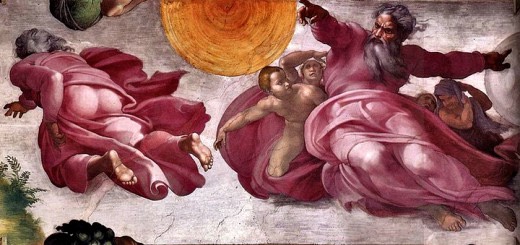Lo scandalo di un Dio al contrario (Gv 6,60-69)
Riflessioni bibliche di Fabio Trimigno del gruppo Zaccheo, cristiani Lgbt di Puglia
Molti dei suoi discepoli, dopo aver ascoltato, dissero: «Questa parola è dura! Chi può ascoltarla?». Gesù, sapendo dentro di sé che i suoi discepoli mormoravano riguardo a questo, disse loro: «Questo vi scandalizza? E se vedeste il Figlio dell’uomo salire là dov’era prima? È lo Spirito che dà la vita, la carne non giova a nulla; le parole che io vi ho detto sono spirito e sono vita. (Giovanni 6,60-69)
Siamo giunti alla fine del capitolo VI del vangelo di Giovanni, e in questi ultimi passi ci viene posto tutto lo scandalo che Gesù causa non solo tra i giudei ma anche tra i suoi discepoli.
Essi ragionano secondo la carne, ossia secondo i pensieri umani, che non provengono dallo Spirito di Dio, pertanto cadono in crisi. Ma perché avviene questa crisi?
Le parole di Gesù a volte sono dure e urtano anche i discepoli che lo seguono: che Gesù sia “disceso dal cielo” e che nella carne di un corpo mortale racconti di un Dio vivente, proprio non lo accettano.
In the Gospel of John, in his speech Jesus says: "I am the living bread descended from heaven" (Jn 6,51), but precisely those who had acclaimed him as "the great prophet who comes into the world" (Jn 6:14 ) and who had wanted to make him king (Jn 6:15), in the face of these words they feel scandalized in their faith.
Prophet yes, but descended from the sky, body of a prophet to eat and blood of a king to drink, this is right! Pure andropophagia!
Jesus knows well the murmurs of the disciples, but he is not afraid to say all the truth, and the cost of causing a division among his, attacks the murmurs saying: “This scandalizes you? And when will you see the son of man to go up where he was before? "
That is, he says: "And when you are faced with the reality of the resurrection, then the scandal will be bigger?"
But among you there are some who do not believe ». In fact, Jesus knew from the beginning who were those who did not believe and who was the one who would betray him. And he said: "For this reason I told you that nobody can come to me, if he is not granted to him by his father." John 6,64-65
Jesus can do nothing but find that no one can come to him if the Father does not attract him, that is, if the Father does not give it to him: this gift is needed that is not given arbitrary by God but must be sought, it must be wished, it must be accepted as gift that does not require any merit from those who receive it.
This scandalizes religious people and devotees who always demand that God makes gifts according to what they deserved.
But what of Jesus scandalizes even more is his delivery in a fatal body in fragile meat, that is, delivering to human beings. How is it possible that God will deliver into a man who can be betrayed and given in the hands of the executioners?
Here the faith stumbles in having to welcome the image of a God on the contrary, of a messiah on the contrary, of a king on the contrary, of a God who is fragile, of a poor and weak God, of a God of the marginalized and excluded , of a God of widows and orphans, of a God whose men can do everything they want.
The scandal of this God lies precisely in his condition that I like to define it as a divine and humanizing nature and human and divine presence.
From that moment many of his disciples returned back and they no longer went with him. 67 then he said Jesus to the twelve: "Maybe you also want to leave?" Simon Pietro replied: «Lord, who are we going to? You have words of eternal life 69 and we have believed and known that you are the saint of God ». Giovanni 6,66-68
Jesus turns to those few who have been saying "do you want to go too?".
He does not fear, even if he suffers from the idea of being alone. He does not fear because he has faith in the word that the Father addressed him, he has faith in the promise of God who will not fail. Others, friends, relatives, loved people, but God remains faithful, may fail.
Today the Church no longer has the courage to make these words resonate Jesus, because he is afraid of losing success, he fears that the number of believers fall, pushes the priests to be more community animators than pastoral guides, forces the bishops to Being bureaucrats and administrators more than soul climbers, aims at the greatness of the Christian community by linking it to processions and devotions rather than the quality of the faith and pastoral paths, covers errors rather than asking for forgiveness, forces the faithful to inhabit their thoughts in order to Do not admit that the doctrine must serve the man and not to govern him, he tries to erase the word "scandal" from his dictionary, forgetting that Jesus was the first to scandalize with his word.
According to the profession of faith that Pietro does, Jesus is the one who pronounces "words of eternal life" and recognizes him as "saint of God". The saint of God is not a man who has achieved particular peaks of holiness due to the effect of grace, but it is God himself in the fullness and totality of holiness, it is God himself who made himself man, pouring on our nature all the beauty, the truth And the good they are in the holiness of God: in Jesus there is the presence of God (Shekina).
Peter can come to this profession of faith not because someone taught him, but thanks to his intimate and profound knowledge of Jesus, thanks to his testimony of life matured in coexistence with him. He is the representative of those who have "known" Jesus, because they were with him and shared his life as a true, free and traveling man.
But what we have not known Jesus do we consider ourselves men and women of faith?






